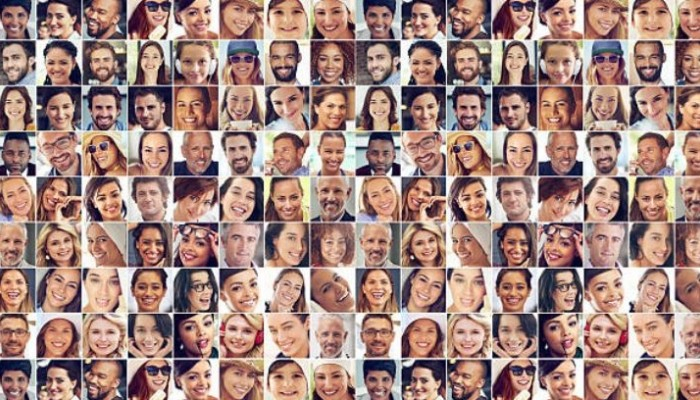While some individuals are naturally better at remembering faces than others, new research suggests that the average person is able to recall approximately 5,000 faces in total.
The study claims to be the first to calculate exactly how many faces the average human mind is able to recall, both from personal encounters and from the media.
The research team, from the University of York, had the participants write down as many names of friends, colleagues, classmates and family members that they could in the space of an hour.
They also had to write the names of as many famous people that they could think of at the same time.
Following on from this, the participants were shown thousands of photographs of celebrities and asked to name as many as they could.
According to the results of the study, the participants were able to distinguish between 1,000 and 10,000 faces in total.
While conducting the study, the researchers calculated a "recall-to-recognition ratio", comparing how many of the faces the participants were able to recall and how many they were able to actually recognise when they were shown the photographs.
They then applied the recall-to-recognition ratio to the total number of people that the participants were able to remember when writing down names of acquaintances and celebrities.
Using this method, they came to the conclusion that the average person is able to recollect approximately 5,000 faces.
This study highlights the incredible ability of the human brain to recognise thousands of faces on a daily basis, as Dr Rob Jenkins from the Department of Psychology and co-author of the study, explains.
“Our study focused on the number of faces people actually know - we haven’t yet found a limit on how many faces the brain can handle,” he says.
“The ability to distinguish different individuals is clearly important - it allows you to keep track of people’s behaviour over time, and to modify your own behaviour accordingly.”
While conducting the study, the researchers found that the participants were able to remember lots of names at first, but then by the end of the hour their ability to come up with names of people that they knew began to falter.
Dr Jenkins believes that people who are raised in areas surrounded by more people may have stronger facial recognition abilities.
“It could reflect different social environments - some participants may have grown up in more densely populated places with more social input," he says.
The study, published in journal Proceedings of the Royal Society B, was carried out with 25 undergraduate and postgraduate students at the University of Glasgow and the University of Aberdeen aged between 18 and 61 years old.
More about: memory
















































